Public Health News
2021 Public Health Student Awards
The Department of Public Health is pleased to recognize the outstanding work of its undergraduate and graduate students for excellence. Awardees were nominated by faculty and professional staff and selected at a group meeting. Given the abundance of talent and achievements of our students it is always a challenge to make these award decisions. Our department is very proud of all of our graduating students and present for your review in the attached document the undergraduate and graduate student awardees from among the graduating class of 2021.
Our department seeks to be a leader in leveraging public health research, practice, and education to create the greatest impact on global health. You our students play an important part in making this vision possible. Congratulations class of 2021!
Congratulations to our Award Winners!
Public Health Award winners:
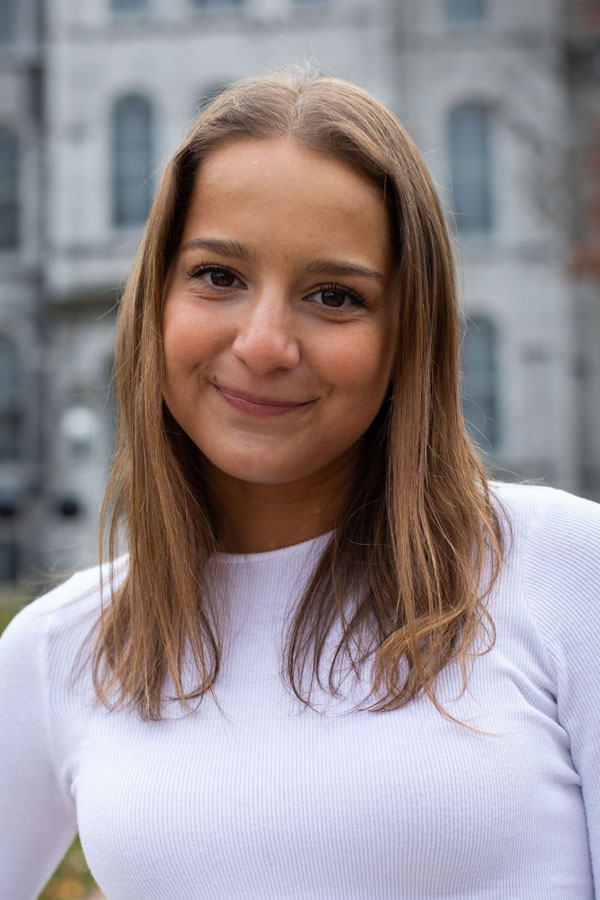
Academic Excellence in Public Health
Helaina Brown, BS Public Health ‘21
Helaina is recognized for her outstanding academic success, earning a cumulative GPA of 3.99. In addition to the BSPH, Helaina completed a minor in psychology. Helaina is seeking public health related employment and plans to pursue a graduate degree within a few years.
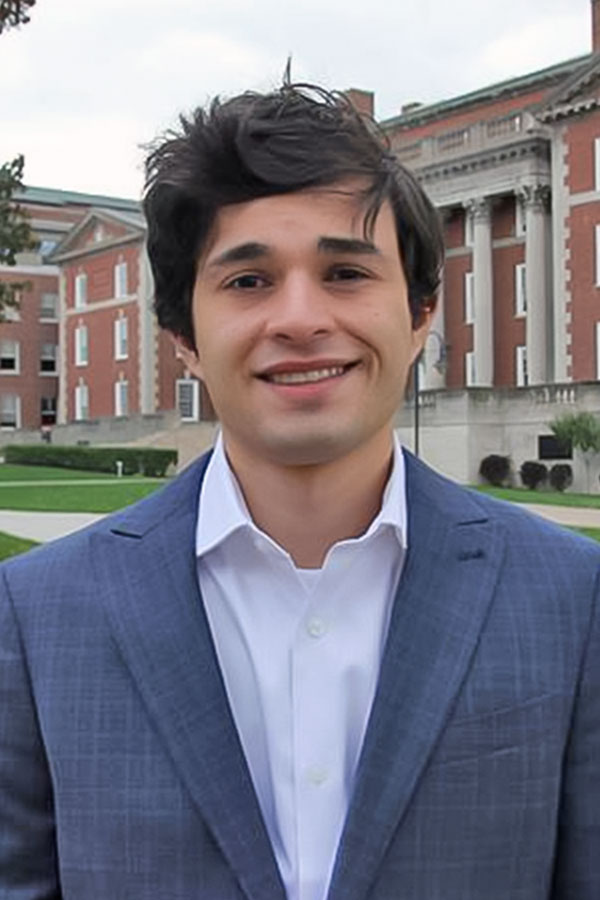
Excellence in Public Health Practice
Alex Godinez, BS Public Health ‘21
Alex, BSPH ’21, is recognized for his work with the COVID-19 Wastewater Monitoring Program. He began as a volunteer in fall 2021 and quickly advanced to lead volunteer. His early work with this program was critical in establishing the COVID-19 wastewater surveillance for Syracuse University. In spring semester, he added the role of contact tracer as part of his senior capstone internship requirement. Alex participated in the accelerated BSPH/Master of Public Health (MPH) program and will continue his studies in the Syracuse University MPH program in the fall of 2021.
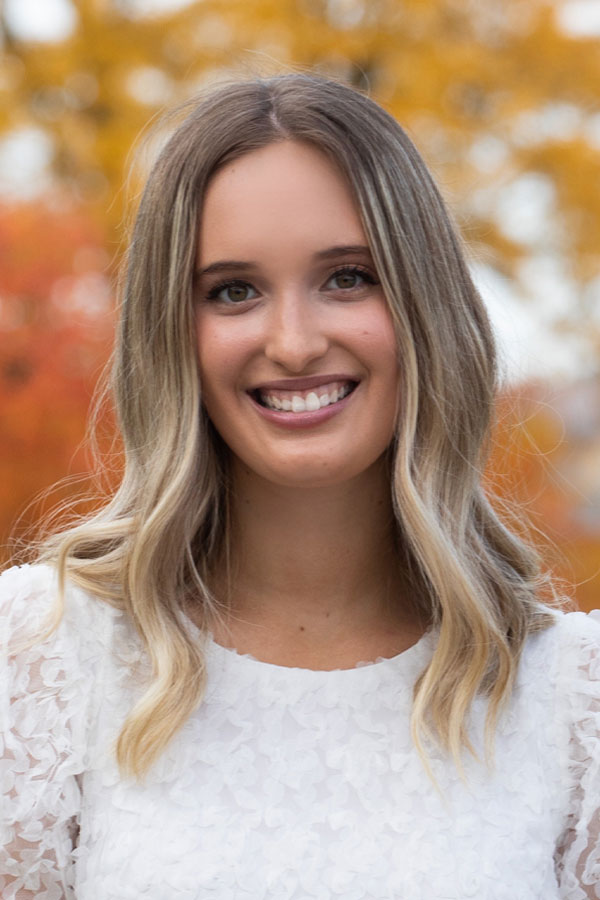
Public Health Leadership Award
Amelia Dome, BS Public Health ’20, BA Policy Studies ‘20
Amelia is recognized for community service work and projects outside of her academic requirements. She served as the Coordinating Tutoring Director for the Gettinger Foundation, volunteered with the Children’s National Medical Center (D.C.) where she planned a fundraiser for pediatric brain cancer patients. Amelia later interned with this same organization and drafted testimony for the U.S. Senate about the health effects of separating families at the U.S./Mexico border. In recognition of her outstanding contributions to the community, in 2020 Syracuse University named Amelia as a Remembrance Scholar. Amelia is currently enrolled in John Hopkins University MSN direct entry nursing program.
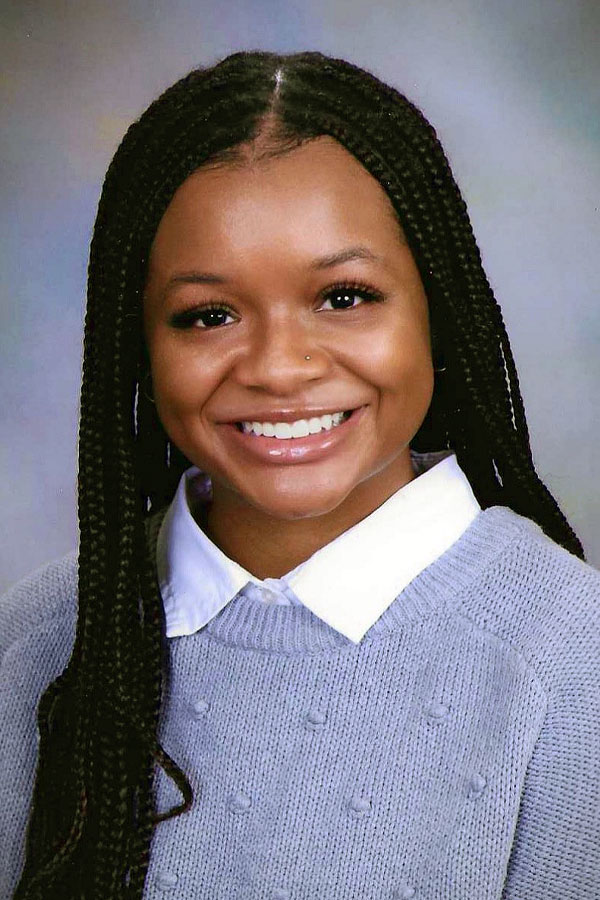
Research Award for Public Health
Symone Roberts, BS Public Health ‘21
Symone is recognized for her 2-year participation in Donna Korol’s research lab where she worked as a research assistant on a project examining female reproductive endocrinology and the hormonal impacts on cognition and cognitive decline. Symone was awarded SOURCE grant funding to support this. In addition to the BSPH, Symone completed a minor in psychology. Following graduation, Symone plans to take a gap year and then apply to medical school.
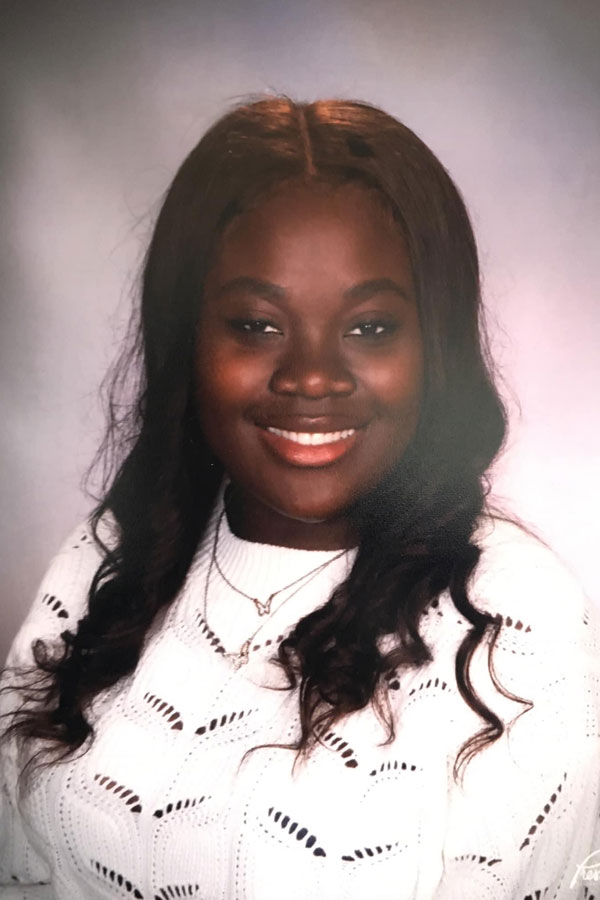
Social Justice in Public Health
Gloria Nabbosa, BS Public Health ‘21
Gloria is recognized for her social justice related work in research, academics, and public health practice. As a McNair scholar, Gloria completed a research project that examined reproductive health among women residing in developing countries. She was awarded SOURCE grant funding to support this research. In 2020, Syracuse University awarded the Our Time Has Come Scholarship to Gloria, recognizing her strong interest in volunteering with underserved populations. In spring 2021, Gloria interned at Hopeprint, an organization that serves low-income, immigrant, and refugee populations. Following graduation, Gloria will be pursuing a master’s degree in biomedical sciences at Boston University.
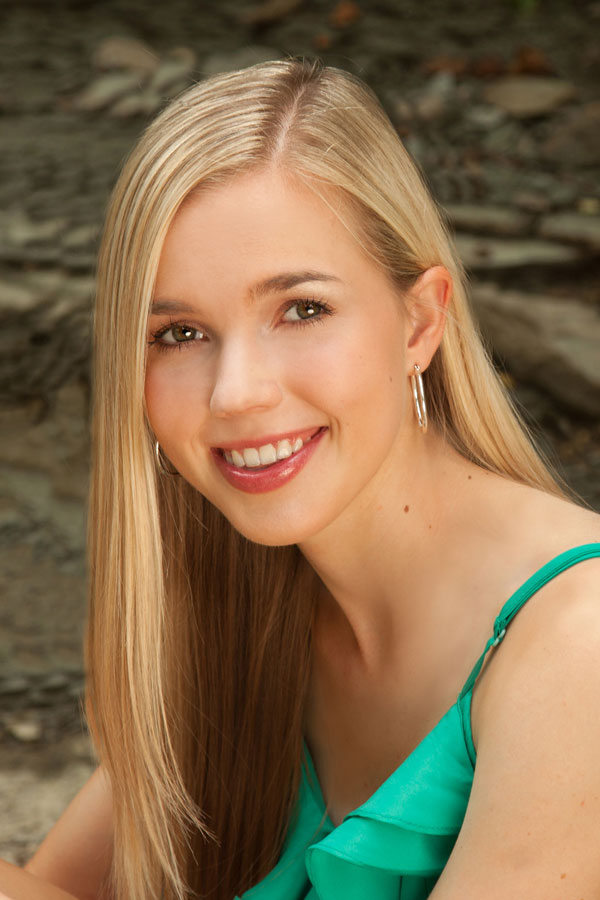
Excellence in Public Health Graduate Program
Anne Heffernan, Master of Public Health ‘21
Annie is recognized for her involvement with the COVID-19 Program Management Office where she volunteered as a contact tracer and laboratory analyst. For the Master of Public Health (MPH) applied practicum experience, she interned with Vera House to develop a primary prevention program for elder abuse and financial exploitation. She is also a distinguished member of the Track and Field team, earning various honors for academic and athletic achievement. Annie plans to apply to medical school in the fall of 2022.
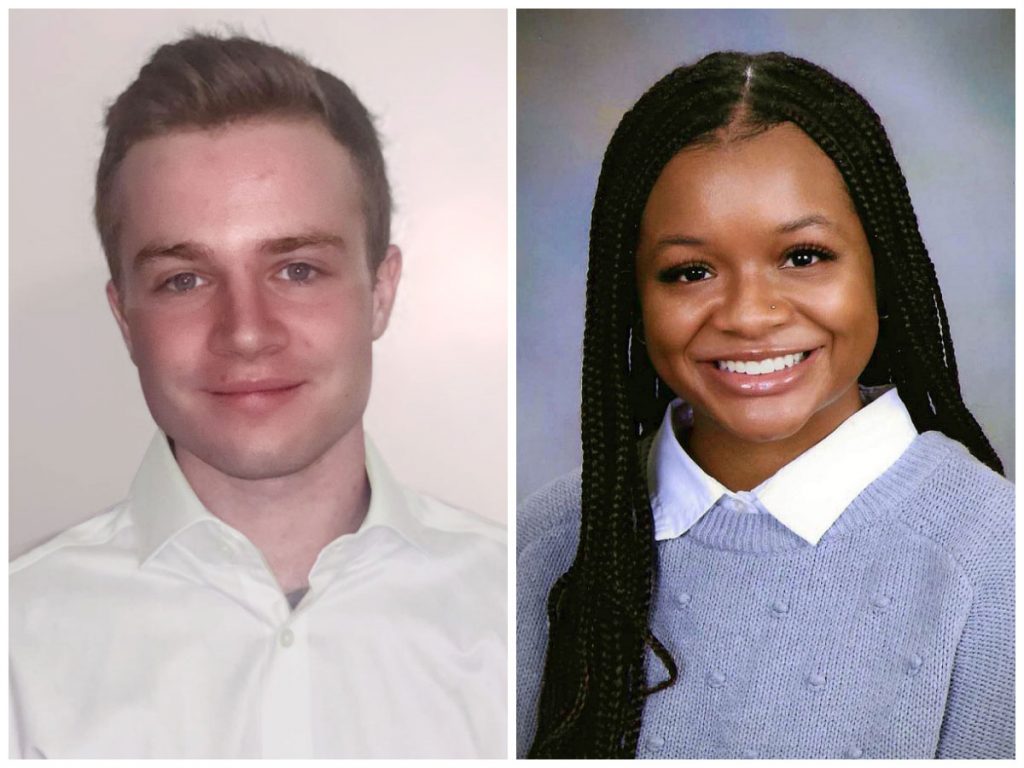
Falk Scholars
Falk Scholars are recognized for their academic excellence, exceptional campus and community engagement, independent research and creative work, evidence of intellectual growth and/or innovation in their disciplinary field, and personal integrity. Following graduation, Seth will attend law school at Temple University. Symone will take a gap year and then apply to medical school.
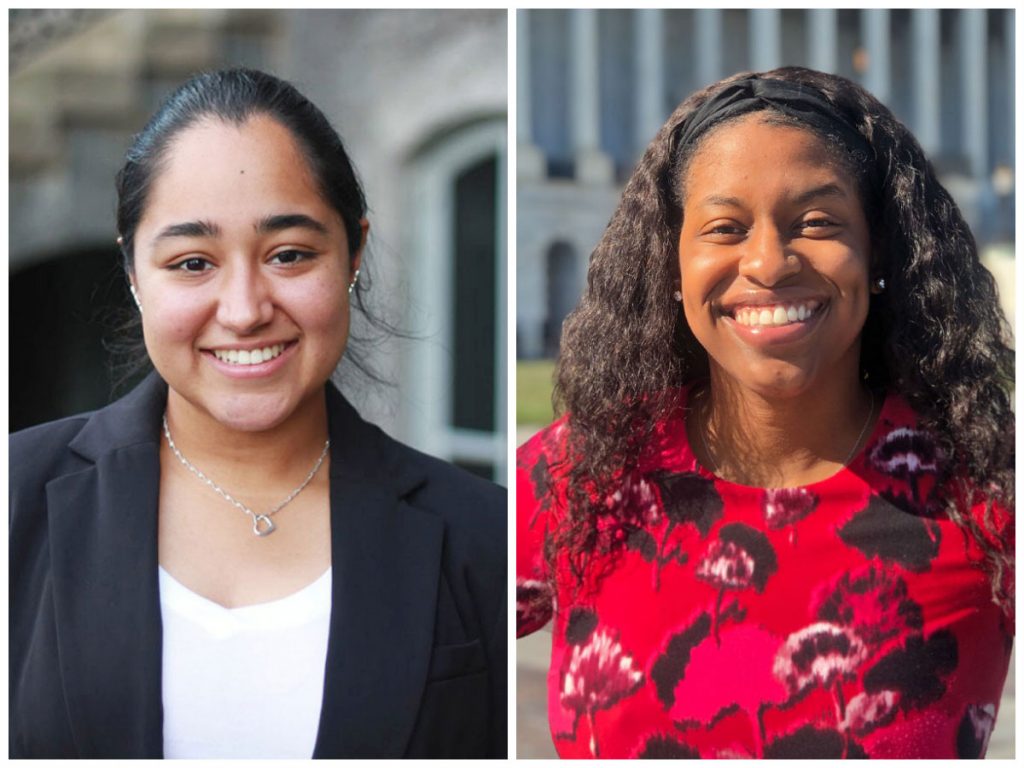
Class Marshalls
Class Marshalls lead the undergraduate and graduate degree candidates into the Falk College Convocation event. The selection of class marshals is made by faculty and peers and is based on academic strength, academic honors, student organization involvement, campus and community service and loyalty to Syracuse University; including activities to support the public health programs. Gursimar participated in the accelerated BSPH/Master of Public Health (MPH) program and will continue her studies in the Syracuse University MPH program in the fall of 2021. Following graduation, Kennedy will study law at the University of Maryland.
Good Medicine
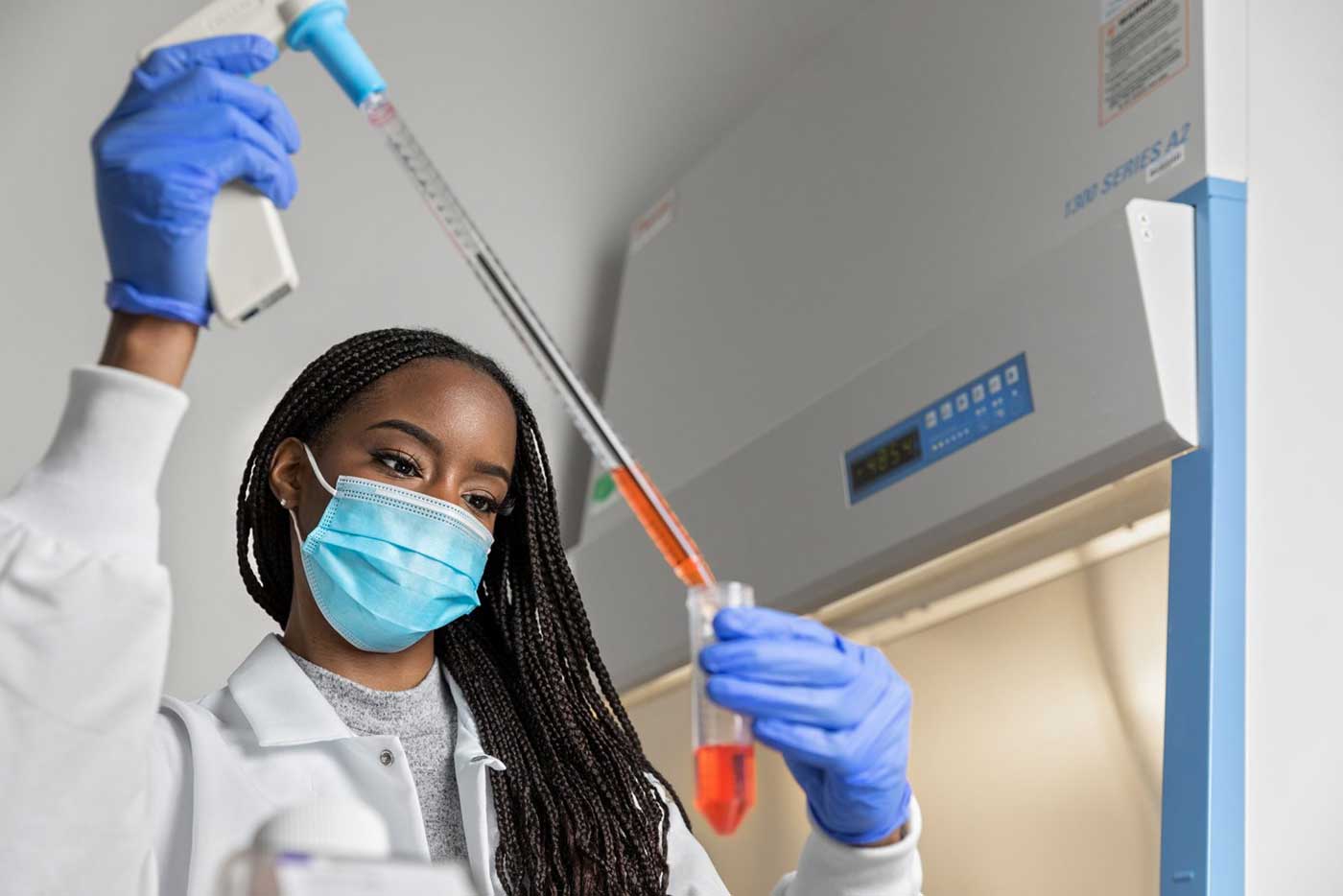
When Ifeyinwa “Ify” Ojukwu ’22 arrived at Syracuse University three years ago, she knew she’d have opportunities to join organizations and conduct research. But she surprised even herself with the amount of meaningful work she’s been able to accomplish through her classes and research.
Ojukwu—a biology and psychology major in the College of Arts and Sciences, and a public health minor in Falk College—has set her sights on becoming a physician and on addressing systemic, race-related disparities through health care policies. “I feel like my interest lies in recognizing vulnerabilities in others and wanting to support them,” says Ojukwu, who grew up in Guilderland, New York. “Medicine is just one way to go about that, but it’s an important way, and one that resonates with my personal and scientific interests, too.”
Although she was always interested in medicine and underserved communities, Ojukwu really became invested in the topic when she took the Falk College public health course Health Disparities and Underserved Populations. “It made me understand that there needs to be a great deal of urgency in addressing those problems for women, people of color, low-income, native and LGBTQ+ communities. It opened my eyes in many ways.” Ojukwu received guidance and encouragement along the way, and she credits Jolynn Parker, director of the Center for Fellowship and Scholarship Advising, with helping her define her long-term goals.
Research Opportunities
For Ojukwu, the COVID-19 pandemic has been both an example of how health care inequities can manifest in communities and an important factor in her research. She’s studied health disparities as part of her public health coursework, including disproportionally high mortality rates from breast cancer among African American women.
“I’ve learned that aspects of our clinical tools themselves, such as the Breast Cancer Risk Assessment Tool (BCRAT), can sometimes perpetuate those disparities and even exacerbate them,” explains Ojukwu. “I’m hoping to address elements of the health care system that contribute to the inequalities, beyond those that manifest due to social determinants of health.” She says that access, late diagnosis and late treatment are all factors in the disparity.
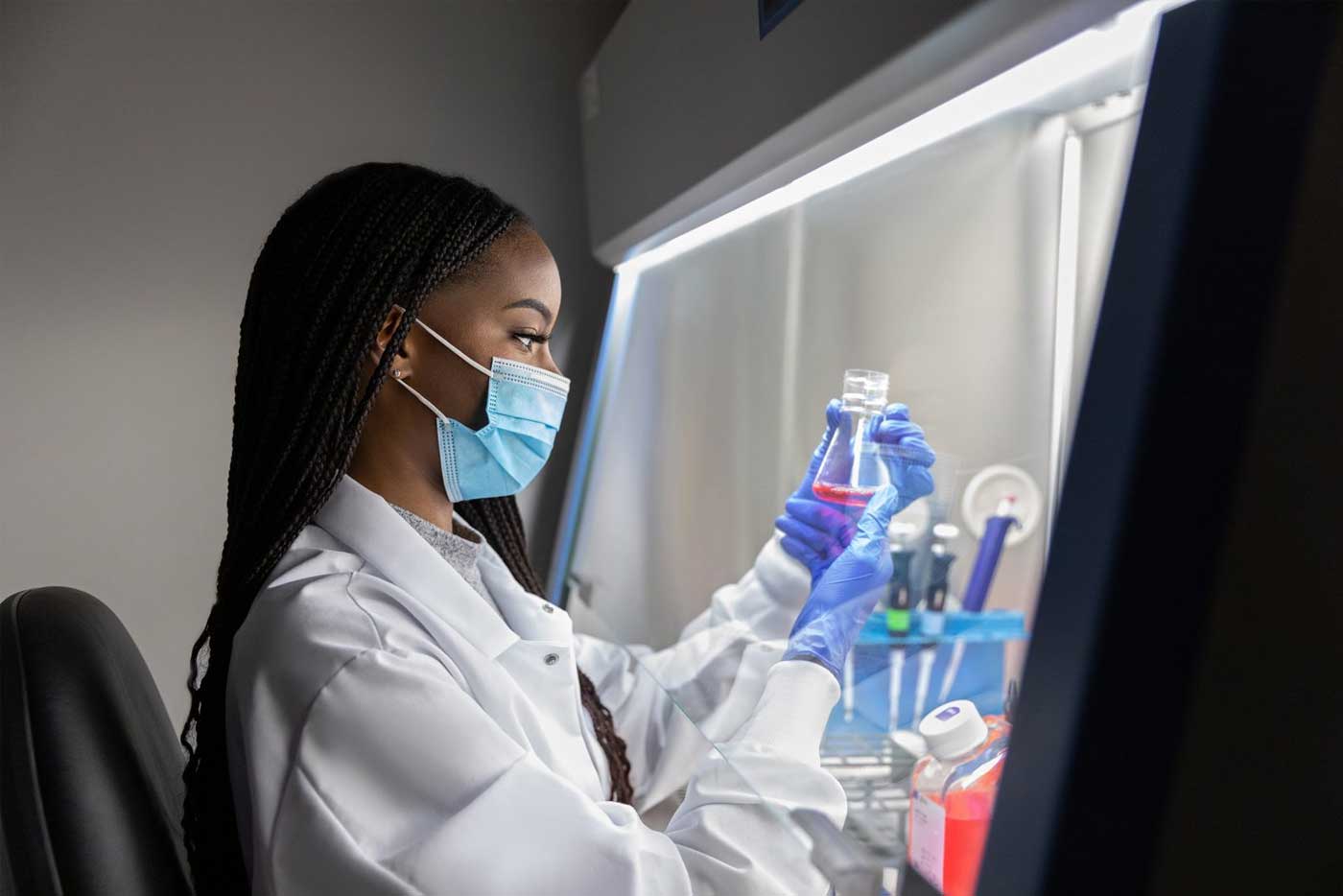
Driven to become more deeply involved in research, Ojukwu explored studies being conducted by faculty at Syracuse University and SUNY Upstate Medical University. Her interest was piqued by the work of Dr. Frank Middleton at SUNY Upstate, so she reached out and was invited to participate in his research on pantothenate kinase-associated neurodegeneration (PKAN), a neurodegenerative disease that develops due to metabolic pathway breakdown.
The PKAN research focuses on patients in the Dominican Republic, so Ojukwu traveled with the team (pre-pandemic) to conduct educational outreach, secure funding, and further their understanding of how this research might shape health outcomes. While there, Ojukwu helped lead informational seminars with patients to educate them about transmission of the disease. Even for someone who knew she was going to have a chance to conduct research, this opportunity to have a positive impact on an underserved community was unexpected. “I would not have thought I’d have a chance to do this type of research and travel if you’d asked me as a freshman,” she says.
Expanding the Curriculum
After witnessing protests across the country last summer related to institutional inequities, Ojukwu worked with a friend to bring a sociology class called Race, Health and Healthcare to the course offerings in spring 2021. The class gives its 20 students a platform to discuss medical issues and race-related health disparities. Over the course of the summer, Ojukwu met with faculty, department chairs and deans to add the course to the curriculum on a trial basis, and she says it was well worth the effort.
As a result of her interests, Ojukwu was recruited as an undergraduate liaison to the biology department’s diversity and inclusion committee, where she works with faculty, staff and other students to evaluate ways of making the curriculum more inclusive. At a virtual retreat to discuss department policy, the committee recommended including a statement on each biology course syllabus indicating the department’s commitment to promoting diversity, inclusion and safe spaces in the classroom. “It feels like a small change, but it is a testament to the biology department’s willingness to openly promote equity and inclusion,” Ojukwu says.
Making Her Presence Known
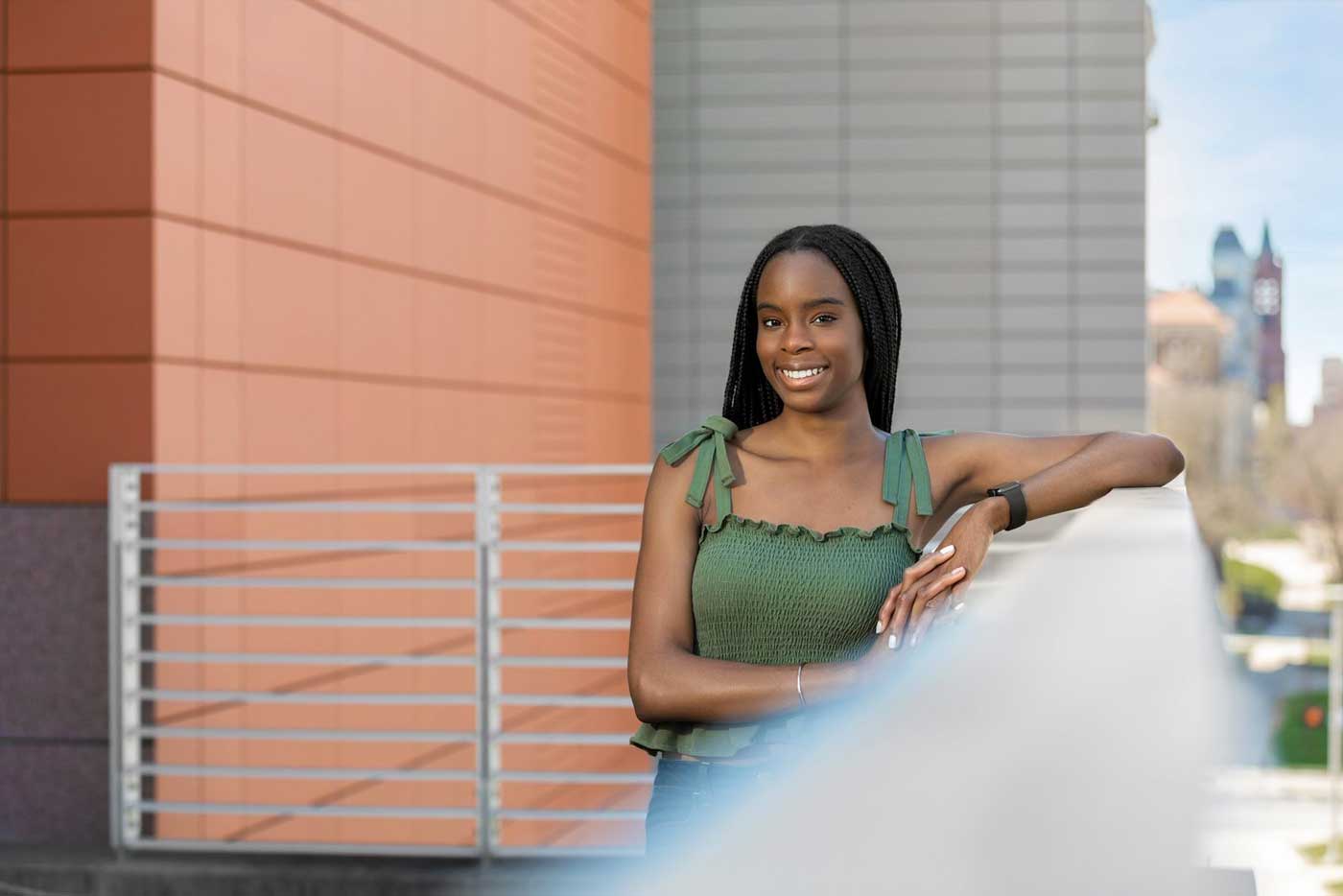
This spring, at the Office of Diversity and Inclusion’s Racial Equity Symposium, she presented her breast cancer research as a case study highlighting racialized clinical tools, including the BCRAT—the first time she had ever given a talk outside of a classroom setting. In April she represented Syracuse University at the virtual ACC Meeting of the Minds conference, hosted by the University of North Carolina at Chapel Hill, where she gave a presentation on her PKAN research. “Each of these opportunities has really allowed me to step into the next dimension of what my career, what my advocacy, might look like,” she says.
As she wraps up her junior year, she feels grateful for the opportunities provided to her at Syracuse University. “All of this has made me more excited for what the future might hold, because I’m honing those skills in a way that will make me better poised to effect the change I want to make over the course of my career.”
– An SU Story by Lisa Maresca originally published on April 20, 2021.
New research explores EMS workers’ mental health
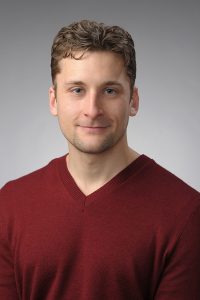
Emergency medical service (EMS) workers face triple the risk for significant mental health problems such as depression and posttraumatic stress disorder compared to the general population, according to a recently published study by researchers from Syracuse University.
The study also showed that daily mental health symptoms for EMS workers can be reduced through recovery activities such as exercising, socializing with other people, and finding meaning in the day’s challenges.
The study, “Dynamic psychosocial risk and protective factors associated with mental health in Emergency Medical Service (EMS) personnel,” was published recently by the Journal of Affective Disorders. The study is also summarized in the Lerner Center for Public Health Promotion research brief “How Do Emergency Medical Service Workers Cope with Daily Stressors?”
The COVID-19 pandemic has underscored the significant mental health burden experienced by EMS workers. The researchers surveyed EMS workers at American Medical Response in Syracuse, N.Y., for eight consecutive days in 2019 to better understand their mental health symptoms related to daily occupational stressors. These stressors can take the form of routine work demands, critical incidents involving serious harm or death, and social conflicts.
“Together, these occupational stressors negatively impacted mental health each day that they occurred,” said researcher Bryce Hruska. “Each additional work demand or critical event that an EMS worker encountered on a given workday was associated with a 5 percent increase in their PTSD symptom severity levels that day, while each social conflict was associated with a 12 percent increase in their depression symptom severity levels.”
The research team was led by Hruska, assistant professor of public health at Syracuse University’s Falk College and a Lerner Faculty Affiliate. Here are the team’s key findings:
EMS workers experience a diverse array of occupational stressors each day.
These stressors are associated with an elevation in mental health symptoms each day that they occur.
Recovery activities (like exercising or socializing with other people) and looking for meaning in the day’s stressors may protect mental health.
The study found that on workdays, the EMS workers engage in approximately three recovery activities during non-work hours, mostly visiting with friends and family, eating a meal with others, and spending quiet time alone.
“These activities had a beneficial impact on mental health; each additional recovery activity in which a worker engaged was associated with a 5% decrease in their depression symptom severity levels that day,” Hruska said. “The social nature of the reported recovery activities is notable, given that healthy relationships can alleviate the negative impact of stress on mental health by assisting with coping efforts and helping to reframe the day’s stressors.
“Perhaps demonstrating this latter effect, we also found that EMS workers who looked for lessons to learn from the day’s challenges experienced a 3% decrease in their daily depression symptoms,” Hruska added.
The researchers identified several actionable strategies that build upon the protective behaviors in which the EMS workers naturally engaged and could make some work events less stressful. Here are some instances noted in the study:
- Developing or refining communications strategies may be helpful for alleviating the stress associated with managing patients’ family and friends and interacting with co-workers.
- Recognizing conflicts as an opportunity for learning and growing may be a useful tactic for effectively resolving the situation with fewer negative mental health effects.
- Taking time to recharge after a particularly demanding shift offers an opportunity to let emotions cool. For example, when EMS workers respond to a critical event, scheduled downtime may offer an opportunity for recovery and processing of the day’s events.
Support for this research was provided by professional development funds from the David B. Falk College of Sport and Human Dynamic at Syracuse University.
Finding Her Place and Purpose
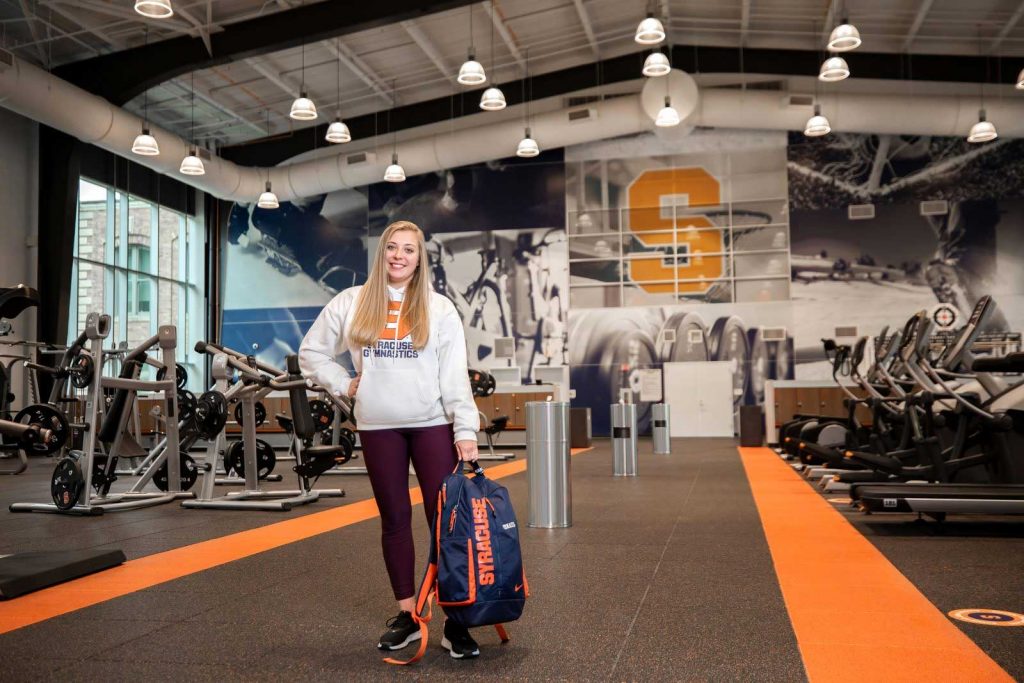
Not everyone has the patience to work with adolescents who are dealing with unhealthy substance use, but Alisamarie Yiatras ’21 embraces this work. She says she’s always been interested in learning about why people choose to use substances. Growing up, she and her father would watch medical television shows every night, and she found herself fascinated by the field.
Yiatras arrived at Syracuse University as a sophomore after transferring from the Rochester Institute of Technology. Originally on a pre-med track, she found herself drawn to psychology in the College of Arts and Sciences. After taking a child psychology class with Shannon Sweeney, she knew she had found her passion. “As soon as I took Professor Sweeney’s course, that solidified me wanting to work with children and adolescents,” says Yiatras.
Beyond the Classroom
Like many teenagers, Yiatras did her fair share of babysitting, and she was fascinated seeing the children move through the developmental stages of life. “Watching a child pick up on things once you teach them something is just so interesting to me.”
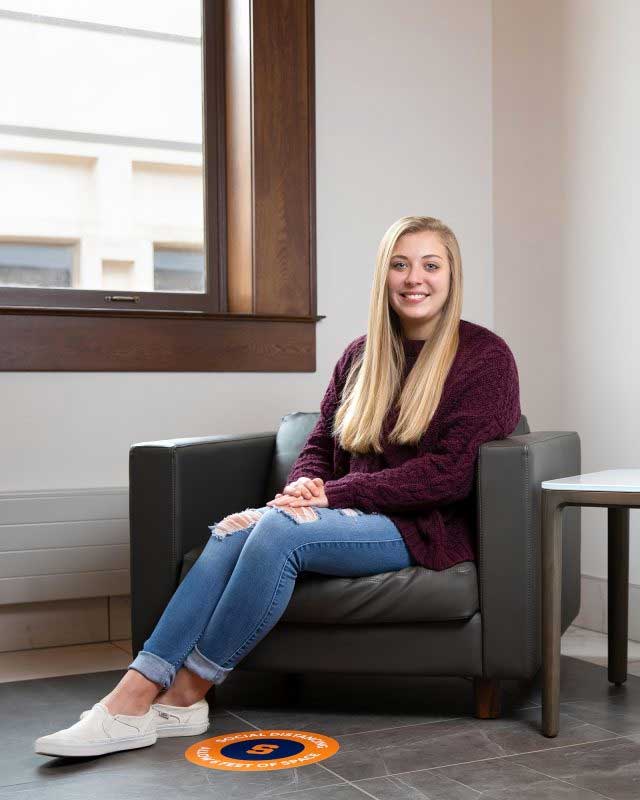
She took her studies beyond the classroom and lab when she started interning at the Center for Integrated Healthcare at the Syracuse VA Medical Center, which integrates mental health and primary care services for veterans through research, education and clinical consultation. Yiatras’ work with veterans (carried out remotely during the pandemic) includes role-playing on suicide prevention, allowing her to apply techniques she learned in an addiction studies course on motivational interviewing.
“The class was specifically related to addiction,” explains Yiatras, “and we did a lot of role-playing scenarios where one person would act as the clinician and the other would act as the patient. That’s been one of my favorite classes because I’m able to see it now in the real world during my internship and in the areas of psychology.”
In addition to her internship and research, she has also served as a Be Wise peer educator, providing health and wellness education related to substance use.
Transferring to Syracuse
Yiatras, the first in her family to attend college, is grateful for all the opportunities to fulfill her passions at Syracuse University, especially since she started out at another institution where she didn’t feel quite right. Growing up in Central Square, New York, she’d always known about Syracuse University but didn’t apply there initially because it felt too close to home.
Her transition to Syracuse was eased by joining the gymnastics team. “It was difficult at first because I wasn’t living in a dorm, so I really had to figure things out for myself in terms of what I wanted to be involved with on campus,” she says. Her teammates often invited her to stay over rather than drive back up north during snowstorms. “It made me feel like I had people who were here for me and who cared.”
Eager to give back to the community that has welcomed her, Yiatras became a transfer transitions leader to mentor other students who have transferred to Syracuse University. Although the mentoring has been particularly challenging this past semester due to COVID-19, she enjoys talking with new students and answering their questions. “It’s really helpful to be in the position that I’m in because I’ve gone through the process myself,” she says. “I just love being able to connect and be a resource for them.”
Looking Toward the Future
Yiatras is already anticipating what comes after graduation. She’s been busy applying to graduate schools throughout the Northeast, including Ph.D. programs and mental health counseling programs. “Either way, I know I still want to continue on with my education. I love learning.”
She wants to go on without taking a gap year, and she credits her professors at Syracuse for instilling that enthusiasm for her chosen field. “Seeing how passionate my addiction studies professors are makes me want to pursue my career even more, especially when I hear their clinical stories and experiences. I always think, ‘Oh, I can’t wait until I can do that!’”
A Syracuse University Story by Lisa Maresca originally published on January 14, 2021.
Healthy You Fall 2020 now available!
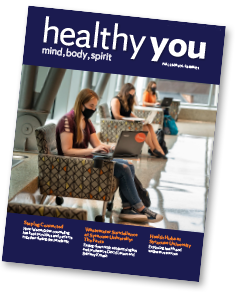 The latest edition of the Healthy You newsmagazine created by students for students is now available. Created by students in PHP 227–Healthy You Practicum taught by Professor Luvenia Cowart, the publication encourages healthy behaviors on the Syracuse University campus and beyond. The Fall 2020 edition includes wide-ranging news stories, from how to maintain a healthy routine during the COVID-19 pandemic and the value of eating whole grains to the sense of community that comes from volunteerism. Published each semester, Healthy You increases health awareness, initiates a dialogue about health trends and issues, promotes good health-seeking practices, and fosters healthy living routines. Below is a link to a PDF copy of the most recent magazine or read an accessible, text-based version of the Fall 2020 Magazine.
The latest edition of the Healthy You newsmagazine created by students for students is now available. Created by students in PHP 227–Healthy You Practicum taught by Professor Luvenia Cowart, the publication encourages healthy behaviors on the Syracuse University campus and beyond. The Fall 2020 edition includes wide-ranging news stories, from how to maintain a healthy routine during the COVID-19 pandemic and the value of eating whole grains to the sense of community that comes from volunteerism. Published each semester, Healthy You increases health awareness, initiates a dialogue about health trends and issues, promotes good health-seeking practices, and fosters healthy living routines. Below is a link to a PDF copy of the most recent magazine or read an accessible, text-based version of the Fall 2020 Magazine.
Falk College exemplifies public health in action
As the COVID-19 pandemic began to escalate this past spring, graduate students in a Falk College applied epidemiology class hosted a public forum for the campus community. According to public health graduate student, Tim Bryant, when Professor David Larsen asked if students had questions regarding the virus, “it proceeded to be a 20-minute question and answer session. I made a statement that if we as public health students had so many questions, I’m sure the rest of the student body did as well. And, wasn’t it our responsibility and obligation as public health professionals to inform and educate our campus community?” added Bryant. The students scheduled the event to reach the student community.
The day after the forum was held, the World Health Organization (WHO) declared the coronavirus as a pandemic.
Since that time, Falk College’s Department of Public Health continues to be a leader on the Syracuse University campus, throughout the local community and beyond in educating about and addressing public health needs during the pandemic. And as it prepares future public health professionals to do the same, students continue to gain valuable hands-on, real-world experience, providing essential support and services in the process, such as contact tracing and supporting campus-wide wastewater surveillance efforts.
Recent alumni have played a large role as part of the multi-institutional team leading the Early Warning Wastewater Surveillance Platform, which continues to inform public health decision-making in Syracuse, Albany, and Buffalo. Pruthvi Kilaru ’18, G’20, a Falk public health master’s graduate, was instrumental in designing the program. This is just one of many programs public health experts on campus are using to keep the community healthy.
“I think I speak for many of my peers when I say that we all have a deep and abiding passion for the field we study. Being able to take concepts out of the classroom and apply them in a meaningful way highlights that,” says Bryant.
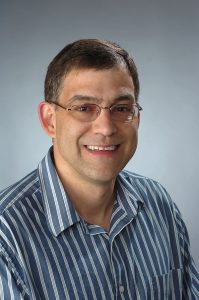 Community education is another important component of public health—equipping the public with the knowledge to keep themselves and others safe and healthy. In addition to exploring COVID-19 in-depth in classrooms with their students, professors have also been making themselves available to share their expertise about the pandemic. A recent U.S. News & World Report op-ed authored by Falk Family Endowed Professor of Public Health, Brooks Gump, addressed the importance of well-known and established disease-control approaches that have been outlined by the Centers for Disease Control and Prevention. The op-ed, “The Great Barrington Declaration: When Arrogance Leads to Recklessness,” can be viewed here:
Community education is another important component of public health—equipping the public with the knowledge to keep themselves and others safe and healthy. In addition to exploring COVID-19 in-depth in classrooms with their students, professors have also been making themselves available to share their expertise about the pandemic. A recent U.S. News & World Report op-ed authored by Falk Family Endowed Professor of Public Health, Brooks Gump, addressed the importance of well-known and established disease-control approaches that have been outlined by the Centers for Disease Control and Prevention. The op-ed, “The Great Barrington Declaration: When Arrogance Leads to Recklessness,” can be viewed here:
U.S. News & World Report Commentary on The Great Barrington Declaration.
Wastewater Surveillance
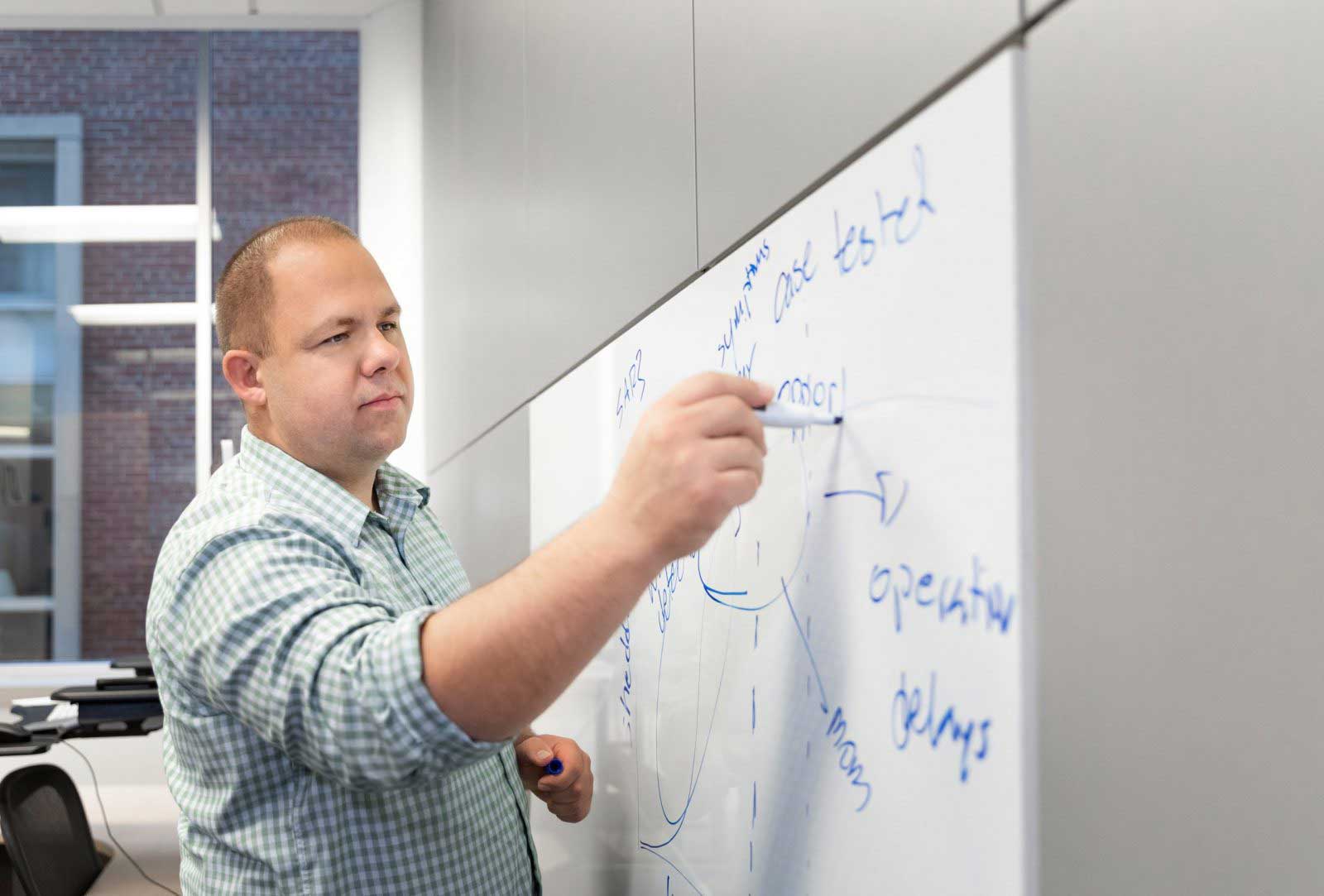
When epidemiologist David Larsen learned last spring that scientists in the Netherlands had detected SARS-Coronavirus-2 in sewage and isolated its RNA, he immediately recognized the significance of their research. “I knew from my experience in global health that it was a big game-changer for the pandemic,” says Larsen, an associate professor of public health at Syracuse University’s Falk College.
In the battle against COVID-19, the ability to monitor local transmission levels is crucial to controlling the virus. Wastewater surveillance—which was implemented a few decades ago to target poliovirus in some countries—acts like a smoke detector, Larsen says. Preliminary research shows it can provide an early alert for COVID-19, allowing public health, medical and health care systems to prepare for an imminent outbreak. Likewise, the absence of the virus in wastewater can help communities make informed decisions about re-engaging in social and economic activities. “It’s all about understanding what real transmission is like in our community—and even potentially showing there’s no transmission,” Larsen says. “That’s where wastewater surveillance can be so useful.”
The idea of establishing an early warning wastewater surveillance platform set Larsen in motion. In March, he reached out across campus and the community to assemble an interdisciplinary team of scientists from Falk, the College of Engineering and Computer Science, SUNY College of Environmental Science and Forestry and SUNY Upstate Medical University. In partnership with Onondaga County and supported by grants from Syracuse University and SUNY-ESF, the team established surveillance efforts in the county and on campus. In August, the New York State Department of Health awarded the team $500,000 to launch a six-week pilot program to expand the platform. By early October, in collaboration with the New York State Association of Counties, they were monitoring 14 counties and 12 universities—and their testing method was proving to be effective. In several instances, including on campus and at various SUNY colleges, they identified the virus in samples, and students were saliva-tested and quarantined until their individual results were known.
The team features experts in microbiology, chemistry, epidemiology, statistical modeling and information science and includes scientists from the state health department and the U.S. Centers for Disease Control and Prevention. As the project expanded, Larsen’s group struck partnerships with Syracuse-based Quadrant Biosciences and the international engineering firm Arcadis, enabling them to meet the growing demand for wastewater sampling and analysis.
Determining a Detection Technique
Many universities and areas around the world have implemented surveillance programs that use different techniques to isolate the virus’s RNA. After exploring several approaches, the Syracuse team locked in on a method that places a sucrose solution underneath a wastewater sample in a test tube and spins it in an ultracentrifuge. “The sucrose cushion purifies out some of the low-density particles and helps purify the RNA that is pelleted to the bottom of the tube,” explains SUNY-ESF environmental microbiologist Hyatt Green, who developed the method with SUNY Upstate clinical microbiologist Frank Middleton. Their technique is comparable in its sensitivity to other methods, requires only a small wastewater sample, and is cost effective and fast, Green says. “A sample can be analyzed in as little as six hours compared to other methods that take 24 to 48 hours.”
Since the novel coronavirus is shed in feces, another key component of their process is determining the amount of a bacteriophage—a common, benign virus that inhabits human gut bacteria—present in their samples. This particular bacteriophage is shed at a known rate, so researchers can draw correlations between that and the virus. “We can use it to account for dilution, population density, and potential decay of SARS-CoV-2 RNA in the wastewater,” Green says. “At the bare minimum, it can be used as a quality control to ensure the recovery of viral RNA.”
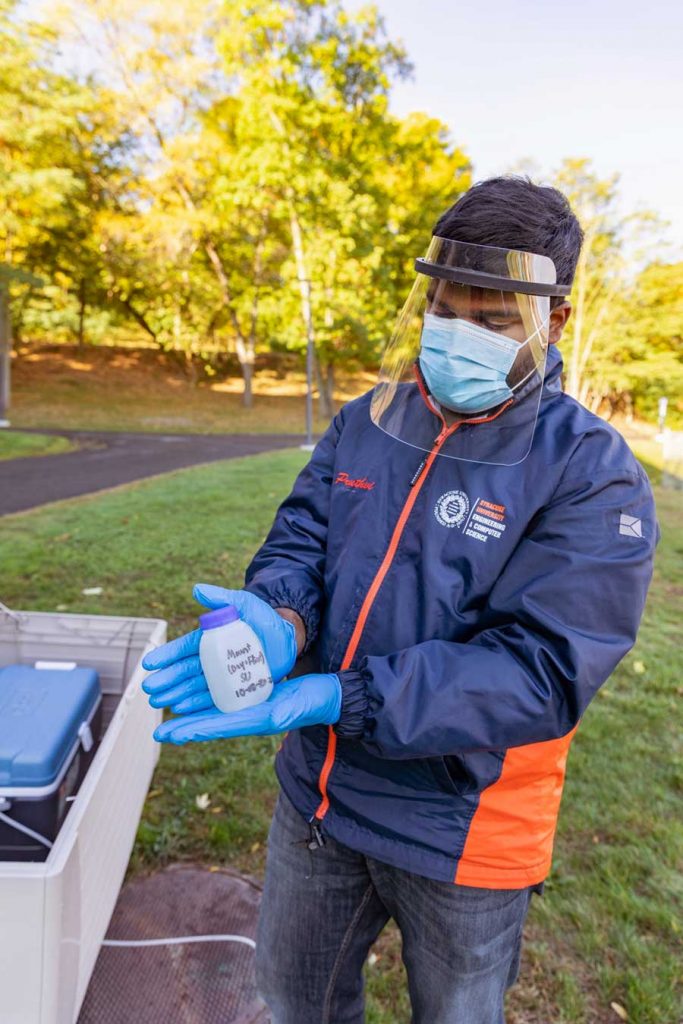
Wastewater’s Wealth of Information
According to team member Teng Zeng, analyzing wastewater presents a number of challenges. “Every single wastewater sample is different, and somehow we have to account for the variabilities,” says Zeng, an assistant professor of environmental engineering in the College of Engineering and Computer Science.
Those samples also provide a wealth of information about any given population, Zeng says. For instance, through chemical analysis over a 12-week sampling period, 26 substances were identified, providing information on pharmaceutical consumption patterns and areas where people have underlying conditions and may be more susceptible to the virus. “We can understand whether differences in the population health or behavior could potentially affect the vulnerability and also morbidity of the population to this particular viral attack,” says Teng, who analyzes samples from Onondaga County’s six wastewater treatment plants. “We will see what else we can pick out from a sample, and we can analyze it to get additional data to complement the public health data that most people are interested in.”
Every piece of information gathered can further our understanding of the virus. “When we detect a certain amount of virus in the wastewater, what does it mean for the number of infections in the population?” asks team member and epidemiologist Brittany Kmush, an assistant professor of public health at Falk College. “We don’t really know that yet. It will depend on all sorts of factors, so we’re trying to work on modeling exactly what this signal means for the number of infections.”
Researchers also underscore that wastewater surveillance is just one tool for taking on the virus. As part of its proactive strategy, Syracuse University tests 21 dormitories and several off-campus locations through its surveillance program led by project manager Pruthvi Kilaru ’18, G’20, a Falk public health master’s graduate who was instrumental in designing the program. Kmush, who oversees the saliva-testing program on campus, emphasizes that knowledge about the virus continues to grow and our response to the evolving information requires vigilance. “Science is always changing,” she says. “This virus didn’t exist last November, so we’re constantly learning about it and using what tools we have available to make our most informed decisions. Sometimes we get different or better answers, and then we have to change our course of action to follow the latest science.”
An SU Story by Jay Cox, originally published on October 27, 2020.
University Scientists Selected to Implement COVID-19 Early Warning System in Upstate New York
The New York State Department of Health has selected the SARS-CoV-2 Early Warning Wastewater Surveillance Platform (SARS2-EWSP) to pilot a statewide coronavirus transmission early warning system.
With $500,000 in state pilot funding, the SARS2-EWSP project will expand into Albany, Newburgh, and Buffalo, and increase the frequency of surveillance in Syracuse and Onondaga County. Other interested municipalities can also participate in the platform, although at this time they will have to self-fund.
Once fully operational, the early warning system will enable these municipalities to better track increases and decreases in coronavirus transmission and make more informed decisions regarding reopening and closing businesses and schools.
Gov. Cuomo announced the project on August 14, 2020 as one of a series of new initiatives related to COVID-19 testing.
The SARS2-EWSP project started as a collaboration in mid-March between scientists from Syracuse University, SUNY ESF, and SUNY Upstate. Seeking to expand to a statewide platform, the scientists teamed with industry partners Arcadis and Quadrant Biosciences to provide expertise and scale in wastewater sampling and laboratory analysis.
“Tracking the coronavirus in wastewater provides a cost-effective method of understanding community-level transmission dynamics,” said Syracuse University epidemiologist Dr. David Larsen, who leads the SARS2-EWSP team. “We now need to coordinate and scale this type of monitoring into a centralized and statewide platform to better inform responses to the coronavirus pandemic.”
In addition to Larsen, the team includes Drs. Hyatt Green and Mary Collins from SUNY College of Environmental Science and Forestry; Dr. Frank Middleton from SUNY Upstate Medical University; Drs. Brittany Kmush and Teng Zeng from Syracuse University; Dr. Qian Du from Quadrant Biosciences; and others.
“Wastewater-based epidemiology has been around for some time, but because of the scale of this pandemic and recent technological advances, never has it shown so much potential to help save lives and livelihoods,” said SUNY ESF environmental microbiologist Green, whose team along with SUNY Upstate’s Middleton developed the analytical methods to detect the virus in wastewater.
The SARS2-EWSP platform monitors the presence of SARS-CoV-2 RNA in wastewater, the virus that causes COVID-19, alerting the state and participating cities to increases and decreases in viral transmission. These real-time trends provide critical information for reopening and closing decisions.
SARS-CoV-2 is spread by symptomatic and asymptomatic carriers. Monitoring the wastewater collection system can help a community understand where the virus is present at a low per-capita cost, even in the absence of physical symptoms and challenges or delays in testing.
Early detection of increasing transmission allows state and local officials to take precautionary safety measures that can prevent future spread while maintaining a layer of anonymity for residents. And when transmission decreases, monitoring wastewater confirms the decline and eases anxiety about missing cases or transmission in the health system.
“The power of this partnership is in the unique blend of engineering and epidemiology coming together to safeguard public health through rapid detection,” said Alex Rothchild, Arcadis’ CEO in North America. “As communities move to reopen safely, this collaborative effort will be instrumental in helping the state and local communities make informed decisions to protect residents’ physical and economic well-being.”
To maximize results for the state, team members will lean heavily on their respective strengths. Arcadis’ wastewater engineers and scientists will use knowledge of collection systems to identify strategic sampling locations and use best-in-class techniques for safe sample collection. Samples will be analyzed by Quadrant Biosciences, using an ultracentrifugation method developed by SARS2-EWSP scientists. The team will use a new data modelling methodology developed by SARS2-EWSP scientists to understand and report on how virus transmission in communities is changing to inform state officials.
“This can be a real game-changer in the detection and monitoring of COVID-19,” said Quadrant Biosciences CEO Richard Uhlig. “Information from this testing will allow municipalities to estimate COVID-19 transmission in real time, provide instant feedback on social distancing and reopening phases, help predict hospitalizations and provide confidence for locations with zero transmission to resume normal activity.”
About the SARS2-EWSP Team
The SARS2-EWSP team is a collaboration between scientists from Syracuse University, State University of New York College of Environmental Science and Forestry, and State University of New York Upstate Medical University. With a variety of expertise in epidemiology, microbiology, chemistry, computer science, and information science, the team has worked since March on developing an early warning wastewater surveillance system to aid in the coronavirus pandemic.
Falk College welcomes new faculty and staff
Syracuse University’s Falk College is pleased to welcome four new staff members who have joined Falk College in the past academic year: Donna Fecteau, Administrative Assistant in the Department of Exercise Science; Julia Fuqua, Office Coordinator in the Department of Exercise Science; Heather Mauro, Internship Placement Coordinator in the School of Social Work, and; Melissa Tobin, Counselor, Academic Services in the Office of Student Services.
In addition, Falk College is pleased to announce the appointment of six new faculty members, Bernard Appiah, Maria Erdman, Kenneth Marfilius, Miriam Mutambudzi, Latha Ramalingam, and Maryam Yuhas, in addition to six faculty who join Falk College with the Department of Exercise Science, Tiago Barreira, Tom Brutsaert, Keith DeRuisseau, Kevin Heffernan, Joon Young Kim, and Kristen Konkol.
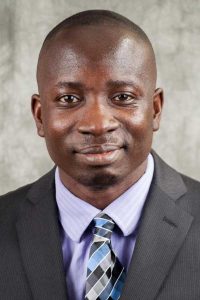 Bernard Appiah
Bernard Appiah
Assistant Professor, Department of Public Health
Bernard Appiah joins the Department of Public Health in Falk College as Assistant Professor in Fall 2020.
Prior to joining Syracuse University, Appiah was Assistant Professor at Texas A&M University’s School of Public Health in the Departments of Environmental and Occupational Health and Public Health Studies. He was the Founding Director of the Research Program on Public and International Engagement for Health. Previously, Appiah served as a Drug Information Pharmacist/Publications Manager at the National Drug Information Resource Centre (NDIRC) for the Ministry of Health in Ghana. He has taught courses such as environmental and occupational health communication, social context of population health, and comparative global health systems.
Appiah’s research interests lie in socio-behavioral approaches for exploring public health issues, global health and environmental health with emphasis on socio-behavioral change communication, public/community engagement interventions, and dissemination of information/knowledge through culturally appropriate communication channels. He is published in several journals, including Psychiatry Research, BMC Complementary Medicine and Therapies, Journal of Medical Internet Research (JMIR) mHealth and uHealth, and authored book chapters, technical reports, and many articles for mass media. He has presented at the International Workshop for Practitioners of Engagement Between Health Researchers and Schools in Kilifi, Kenya, the West African Society of Pharmacologists (WASOP) Conference in Ghana, and the Academy for Future International Leaders (AFIL) Open Session Seminar on Global Health Issues.
Appiah’s research has received support from the Wellcome Trust, UK, the Bill and Melinda Gates Foundation, Grand Challenges Canada, USAID Ghana, and Texas A&M University. Among the most recent supporters of his research is the National Heart, Lung, and Blood Institute (NHLBI) of the National Institutes of Health. Appiah is the recipient of numerous teaching and research fellowships and other honors including being named as a Carnegie African Diaspora Fellow in 2018 and 2016. He currently serves as Head of Capacity Building and Research Programmes for the Pan-African Network for Popularization of Science and Technology and Science Communication (African Gong); member of the Healthcare Safety and Quality Expert Committee of the U.S. Pharmacopeia, and; reviewer for Public Understanding of Science.
Appiah earned his Dr.PH in Health Promotion and Community Health Sciences in 2013 and his M.S. in Science and Technology Journalism from Texas A&M University’s School of Public Health and College of Veterinary Medicine & Biomedical Sciences, respectively. He earned his master’s in Development Communication from the University of the Philippines Open University (UPOU) and his B.Pharm in Pharmacy from Kwame Nkrumah University of Science and Technology (KNUST) in Ghana.
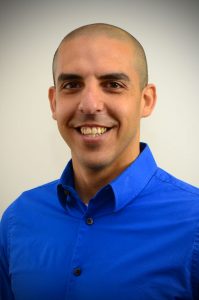
Tiago Barreira
Assistant Professor, Department of Exercise Science
Tiago Barreira joins Falk College as Assistant Professor in the Department of Exercise Science in Fall 2020. He teaches courses such as systemic physiology and exercise, research methods in exercise and sports science, measurement and evaluation in exercise science, physical activity and public health, and obesity and body composition.
Prior to joining Falk College in 2020, the Department of Exercise Science was positioned within Syracuse University’s School of Education, where Barreira has served as Assistant Professor since 2014. Barreira is also the Director of the Kinesmetrics Laboratory at Syracuse University. Prior to joining Syracuse, he completed a Postdoctoral Fellowship at the Pennington Biomedical Research Center. Barreira’s research focuses on the measurement of physical activity: establishing validity and reliability evidence of physical activity measurement tools; determining how to use physical activity measurement tools to obtain reliable and accurate information on physical activity patterns; the use of physical activity measurement tools as a motivation to promote increased physical activity levels, and; investigating the relationship between physical activity and cardiovascular disease risk factors. His work is published in several journals, most recently in International Journal of Environmental Research and Public Health, the Journal of Aging and Physical Activity, Disability and Rehabilitation, Artery Research, and the Journal of Sports Medicine and Physical Fitness among others. He has given presentations for the International Biometric Conference, The American College of Sports Medicine, and the International Conference on Ambulatory Monitoring of Physical Activity and Movement, among others.
Past research has received support from the National Institutes of Health, American Heart Association, Institute for Educational Sciences SHAPE America, Fight for Hearts, among others. Barreira is a journal editor for the Physical Activity section of Measurement in Physical Education and Exercise and is a manuscript reviewer for several journals and publications. He currently serves as Co-Chair of the Measurement and Evaluation Special Interest Group from SHAPE America and a member of the American College of Sports Medicine Mid-Atlantic Chapter Research Committee.
Barreira earned his Ph.D. in Human Performance with a concentration in Kinesmetrics in 2010 from Middle Tennessee State University, where he also earned his M.S. in Exercise Science. He also earned a B.A. Physical Education and B.S. in Business Administration from the University of North Carolina at Wilmington.
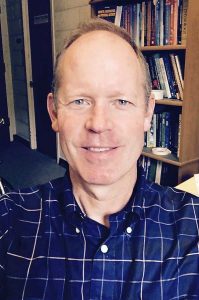 Tom Brutsaert
Tom Brutsaert
Professor, Department of Exercise Science
Tom Brutsaert joins Falk College as Professor in the Department of Exercise Science in Fall 2020. In the department, he teaches courses such as energy metabolism and exercise, physiology of exercise, environmental physiology, high altitude physiology and biology, and human biological variation.
Prior to joining Falk College in 2020, the Department of Exercise Science was positioned within Syracuse University’s School of Education, where Brutsaert has served as Professor since 2016 and previously as Associate Professor since 2009. At Syracuse, Brutsaert is the Director of the Altitude Simulation Laboratory, holds a courtesy appointment in the Department of Anthropology, and helps to coordinate the Human Performance Laboratory. Before joining Syracuse University, he held several positions at SUNY Albany. There, he was a Fellow in the Center for Social and Demographic Analysis, and was Associate Professor in the Department of Anthropology from 2005 to 2009 after being promoted from Assistant Professor. He also served as Co-Director of the Human Biology Program from 2003 to 2004. He completed an NIH Postdoctoral Fellowship at the University of California at San Diego’s School of Medicine in the Division of Physiology.
Brutsaert has broad research interests in how gene and environment interact to produce variation in human athletic ability and health and disease. His work is published in several publications, most recently in Frontiers in Genetics, Proceedings of the National Academy of Sciences of the United States of America, European Journal of Applied Physiology, the American Journal of Physical Anthropology, and International Journal of Molecular Sciences, among others. He has given presentations at the International Conference on Genomics, Leh High Altitude Symposium, World Congress on High Altitude Medicine and Physiology, for the Center for Physiological Genomics, and others.
Past research has received support from the National Science Foundation (NSF Division of Behavioral and Cognitive Sciences, National Institute of Child Health and Human Development, the National Geographic Foundation, and a Fulbright Specialist Award. Brutsaert serves on the Advisory Editorial Board for Sports Sciences for Health and the Editorial Board for High Altitude Medicine and Biology, and previously served in editorial and reviewer roles for other journals, books, and grants.
Brutsaert earned his Ph.D. in Biological Anthropology in 1977 from Cornell University, where he also earned his M.S. in Human Nutrition and M.A. in Biological Anthropology. He earned his B.A. in Biology from Northeastern University.
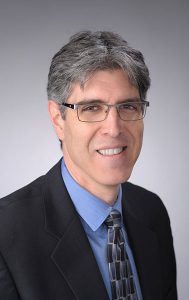 Keith DeRuisseau
Keith DeRuisseau
Associate Professor and Chair, Department of Exercise Science
Keith DeRuisseau joins Falk College as Associate Professor in the Department of Exercise Science in Fall 2020. He is currently the Chair of the department and teaches courses such as introduction to exercise science, physiology of exercise, and skeletal muscle physiology.
Prior to joining Falk College in 2020, the Department of Exercise Science was positioned within Syracuse University’s School of Education, where DeRuisseau has served as Associate Professor since 2012 and previously as Assistant Professor since 2006. Before joining Syracuse University, he was a Postdoctoral Associate in the Department of Applied Physiology and Kinesiology at the University of Florida.
DeRuisseau’s research investigates potential mediators of skeletal muscle dysfunction under conditions that include disuse, aging, and trisomy (a model of Down syndrome). An emphasis is placed on how iron, oxidants, and antioxidants contribute to skeletal muscle mass and functional responses. He is published in several journals, most recently in Applied Physiology, Nutrition, and Metabolism, the Journal of Applied Physiology, International Journal of Molecular Sciences, European Journal of Sport Science, and Respiratory Physiology & Neurobiology. He has presented his work at Experimental Biology annual meetings and for the American College of Sports Medicine.
Past research has received support from the National Institutes of Health (NIH) Eunice Kennedy Shriver National Institute of Child Health and Human Development (NICHD) and National Institute on Aging (NIA), the Diabetes Group of the Hill Collaboration on Environmental Medicine, the Syracuse University Gerontology Center, and others. DeRuisseau is a 2015-16 Fulbright U.S. Scholar Grant awardee for the Fulbright-Saastamoinen Foundation Grant in Health and Environmental Sciences. He is a member of the American Physiological Society and invited manuscript reviewer for publications such as Medicine and Science in Sports and Exercise, the International Journal of Sport Nutrition and Exercise Metabolism, and the Journal of Applied Physiology, among others.
DeRuisseau earned his Ph.D. in Movement Science from Florida State University in 2002. He earned his M.S. and B.S. in Exercise Science, both from the University of Massachusetts at Amherst.
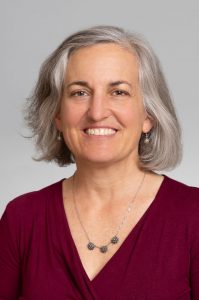 Maria Erdman
Maria Erdman
Associate Teaching Professor, Department of Nutrition and Food Studies
Maria Erdman joins the Department of Nutrition and Food Studies in Falk College as an Associate Teaching Professor in Fall 2020. At Syracuse, Erdman will teach in the nutrition program.
Prior to joining Syracuse University, Erdman was employed at Morrison Healthcare at Upstate University Hospital as a Clinical Outpatient Dietitian at the Upstate Cancer Center since 2014. Prior to that time, she was a Clinical Inpatient Dietitian. Previously, she was a Graduate Research and Teaching Assistant at Syracuse University, and also worked as a Laboratory Manager and Research Technician at UC Davis, Yale College, and Syracuse University.
Erdman’s research on nutrition on college campuses is published in Public Health Nutrition and Health Promotion. She has presented at the Food and Nutrition Conference and Exposition of the American Dietetic Association (2010) and NYSDA Annual Meeting (2009). She has given many nutrition lectures and educational sessions at Oasis/Healthlink Learning Center at Upstate Medical University, Upstate Cancer Center, Upstate Healthlink On Air Radio Program, and Upstate Medical University Physical Therapy, among others.
She is the recipient of several awards, including the Upstate Cancer Center Nutrition Services Fund, a grant from the Upstate Foundation to pay the nutrition counseling bills of cancer patients at Upstate Cancer Center, as well as the 2016 President’s Employee Recognition Award, Clinical Team of the Year. She also received the 2010 Outstanding Dietetics Student Dietetic Internship Award from the New York State Dietetic Association (NYSDA) and the Outstanding Graduate Student in Nutrition Science from Syracuse University. She has served in several volunteer positions for the CNYDA, including president, and has served in volunteer roles at the Crouse Hospital Clinical Dietetics Department, Syracuse City School District, and Community Supported Agriculture of Central New York, among others.
Erdman earned a M.S. in Nutrition Science at Syracuse University in 2009, where she also completed her Dietetic Internship, and a B.S. in Genetics at the University of California, Davis.
She earned certifications as a Board Certified Specialist in Oncology Nutrition (CSO) 2015-20 and a Board Certified Nutrition Support Clinician (CNSC) 2012-17.
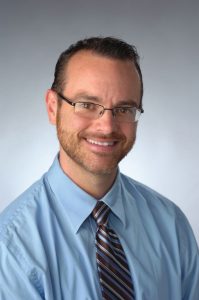 Kevin Heffernan
Kevin Heffernan
Associate Professor, Department of Exercise Science
Kevin Heffernan joins Falk College as Associate Professor in the Department of Exercise Science in Fall 2020. In the department, he teaches courses such as exercise and aging, cardiac rehabilitation, and advanced cardiovascular exercise physiology.
Prior to joining Falk College in 2020, the Department of Exercise Science was positioned within Syracuse University’s School of Education, where Heffernan has served as Dean’s (Distinguished) Associate Professor since 2011. He currently serves as the Director of the Human Performance Laboratory at Syracuse University. Previously, he completed a Post-Doctoral Fellowship at the Tufts Medical Center, Molecular Cardiology Research Institute and the Jean Mayer USDA Human Nutrition Research Center on Aging from 2008 to 2011.
Heffernan’s research examines the interaction of diet, nutritional supplementation and exercise, with an emphasis on resistance exercise, on vascular function in health, disease and disability throughout the human lifespan. His work is published in several journals, most recently the Journal of the American College of Cardiology, JAMA Cardiology, and the Journal of Applied Physiology. He has presented recent work on exercise and cardiovascular health at the American College of Sports Medicine and the North American Artery Society scientific conferences as well as work related to health disparities in cardiovascular disease risk to members of the Congressional Black Caucus. He is Past-President of the Mid-Atlantic Regional Chapter of the American College of Sports Medicine.
Past research has been funded by the American College of Sports Medicine and the American Heart Association. Current work is funded by the National Institute on Minority Health and Health Disparities, part of the National Institutes of Health. Heffernan serves on the Syracuse University Institutional Review Board, Interdisciplinary Neuroscience Faculty, is an Aging Studies Institute Research Member and a Lerner Center for Public Health Promotion Faculty Fellow.
Heffernan earned his Ph.D. in Kinesiology/Exercise Physiology from the University of Illinois at Urbana-Champaign in 2008. He holds a M.S. in Applied Physiology and Nutrition from Columbia University, and a B.S. in Exercise Science from the University of Scranton.
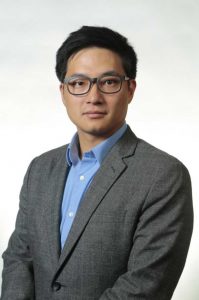 Joon Young Kim
Joon Young Kim
Assistant Professor, Department of Exercise Science
Joon Young Kim joins Falk College as an Assistant Professor in the Department of Exercise Science in Fall 2020. In the department, he teaches courses such as pediatric obesity and systemic physiology and exercise.
Prior to joining Falk College in 2020, the Department of Exercise Science was positioned within Syracuse University’s School of Education, where Kim has served as Assistant Professor since 2019. He currently leads the Clinical Research Laboratory at Syracuse University. Previously, he was a National Institutes of Health-supported T32 Postdoctoral Scholar at the University of Pittsburgh School of Medicine and Postdoctoral Associate at the UPMC Children’s Hospital of Pittsburgh from 2015 to 2019.
Kim is a Ph.D.-scientist and a clinical researcher in exercise physiology with specific focus on childhood obesity, metabolism, and type 2 diabetes. His research focuses on pathophysiology of youth-onset prediabetes/type 2 diabetes, identification of novel phenotypic biomarkers and genetic targets of obesity and type 2 diabetes, and effects of lifestyle intervention on type 2 diabetes risk in obese youth. His work is published in several high-impact journals including Diabetes Care, Diabetes, and the Journal of Clinical Endocrinology & Metabolism. He has given presentations at the American Diabetes Association, American College of Sport Medicine, Endocrine Society, and others.
Past research has been funded by the National Institute of Diabetes and Digestive and Kidney Diseases and the Arizona State University Research Support Program. He has received scholarships and awards from Yonsei University and Arizona State University, as well as the International Society for Pediatric and Adolescent Diabetes and the Endocrine Society. He currently serves as an Advising Member for the American Diabetes Association’s Exercise Physiology Interest Group Leadership Team, an Organizing/Scientific Committee Member for the World Obesity and Weight Management Congress, and an Editorial Board Member for the Journal of Obesity and Metabolic Syndrome.
Kim earned his Ph.D. in Kinesiology/Exercise Physiology from Arizona State University in 2015. He holds a B.S. in Physical Education from Yonsei University in South Korea.
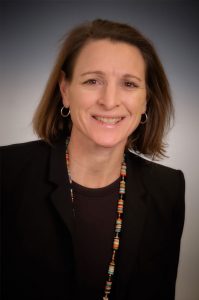 Kristen Konkol
Kristen Konkol
Assistant Teaching Professor, Department of Exercise Science
Kristin Konkol joins Falk College as an Assistant Teaching Professor in the Department of Exercise Science in Fall 2020. She has a dual appointment in the School of Education. In the department, she teaches courses such as structural kinesiology for performance enhancement and injury prevention, structural kinesiology, scientific principles of conditioning, and concepts of fitness. She also runs the internship and experience credits for the department.
Prior to joining Falk College in 2020, the Department of Exercise Science was positioned within Syracuse University’s School of Education, where Konkol has served as Assistant Professor since 2018, and formerly as part-time faculty. Previously, Konkol was an Assistant Professor in the Department of Human Performance, Exercise Science/Physiology at the Minnesota State University, Mankato, where she taught courses such as individualized exercise, aerobic conditioning, and concepts of fitness, among others. She also held an adjunct faculty position there, as well as coaching positions at the Gustavus Adolphus College. At the University of Kwa-Zulu Natal in South Africa, Konkol held several titles, including lecturer, lab instructor, manager in the Human Performance Laboratory, and performance specialist for professional athletes.
Konkol’s research interests include sport specific training; speed, agility, and quickness training; athletic performance testing; strength and conditioning; exercise immunology; and global perspectives in human performance. Konkol’s work is published in the Cardiovascular Journal of Africa, Sport Sciences for Health, Children, Sports and Exercise Medicine Open Journal, and International Journal of Exercise Science.
Konkol currently serves at Syracuse University as the I-Move Program Coordinator and Dance Minor Coordinator. From 2004 to 2006, she served as a United States Peace Corps Volunteer in Guyana and South America. Konlol is a Certified Performance Enhancement Specialist through the National Academy of Sports Medicine.
Konkol earned her Ph.D. in Sports Science from the University of KwaZulu-Natal in South Africa in 2013. She earned an M.A. in Kinesiology with an Exercise Physiology emphasis and a graduate minor in Complementary and Alternative Therapy and Healing Practices from the University of Minnesota in 2001. She earned her B.S. in Exercise Science with a Cardiac Rehabilitation emphasis from the University of Toledo, where she was a Division I collegiate basketball athlete.
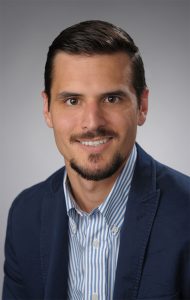 Kenneth Marfilius
Kenneth Marfilius
Assistant Teaching Professor, School of Social Work
Ken Marfilius joins the School of Social Work in Falk College as an Assistant Teaching Professor in Fall 2020.
Prior to his new appointment at Syracuse University, Marfilius served as a Visiting Teaching Professor in Falk College’s School of Social Work since 2018, and as an Adjunct Faculty Member from 2016 to 2018. Marfilius will serve as the School of Social Work’s Undergraduate Director. He has taught courses on topics such as social work intervention, military culture and social work practice, psychopathology, and others. While active duty, Marfilius served in the U.S. Air Force Biomedical Science Corps in multiple roles: active duty clinical social worker, mental health therapist, family advocacy officer in charge, and as manager of the alcohol and drug prevention and treatment program. He was commissioned in 2013 and was discharged in 2016 having obtained the rank of captain. At the Barksdale Air Force Base, Marfilius served in a variety of mental health roles related to sexual assault prevention and response, suicide prevention, and traumatic stress. Marfilius has also worked for the U.S. Department of Veteran Affairs at the Syracuse VA Medical Center in the Healthcare for Homeless Veterans Program, and as a Disruptive Behavior Committee Member.
Marfilius has given several presentations and trainings, topics ranging from veteran cultural competence to trauma-informed care, at the Association for Humanistic Counseling National Conference, the University of Pennsylvania School of Social Policy and Practice, and the United States Department of Veteran Affairs, among others.
Marfilius is honored with a National Defense Service Medal, Global War on Terrorism Service Medal, and Nuclear Deterrence Operations Service Medal. He is a recipient of the U.S. Air Force Health Professions Scholarship and the U.S. Air Force Outstanding Unit Award and has twice been awarded the Barksdale Air Force Base Medical Operations Squadron Company Grade Officer of the Quarter. Marfilius currently serves on several committees at Syracuse University, including his service as Chair of the Council on the Social Work Education Self-Study Steering Committee.
Marfilius earned a Doctorate in Clinical Social Work (D.S.W.) and Master of Social Work (M.S.W.) from the University of Pennsylvania School of Social Policy and Practice. He earned a B.A. in Psychology with a minor in Public Health from Syracuse University. He is a Licensed Clinical Social Worker in the State of North Carolina and is certified in Prolonged Exposure Therapy.
 Miriam Mutambudzi
Miriam Mutambudzi
Assistant Professor, Department of Public Health
Miriam Mutambudzi joins the Department of Public Health in Falk College as Assistant Professor in Fall 2020.
Prior to joining Syracuse University, Mutambudzi served as a Research Associate in the MRC/CSO Social and Public Health Sciences Unit at the University of Glasgow in Scotland, and a Guest Epidemiology Professor in the Department of Epidemiology and Social Medicine at the University of Antwerp in Belgium. Previously, she was an Assistant Professor in the Department of Preventive Medicine and Community Health at the University of Texas Medical Branch, and a Senior Research Program Coordinator at Johns Hopkins University’s School of Medicine.
Mutambudzi’s research focus is on chronic disease and occupational epidemiology. Much of her research has largely been directed towards the use of longitudinal data to assess disparities in morbidity, disability, and mortality, with particular interest in onset and progression of chronic diseases, work-related health outcomes, and social determinants of health in vulnerable populations and older adults in Europe and the U.S. She has published extensively in peer-reviewed journals including the European Journal of Ageing, Journal of Gerontology: Medical Science, and the Journal of Occupational and Environmental Medicine, among many others. She has presented at the International Union for the Scientific Study of Population (IUSSP), Epidemiology in Occupation Health Conference (EPICOH), and the Population Association of America (PAA).
Mutambudzi is the 2020 recipient of the Kammer Emmett Award from the American College of Occupational and Environmental Medicine (ACOEM) for the most outstanding article published in the Journal of Occupational and Environmental Medicine in 2019. Past research support includes funding from the National Institute for Occupational Safety and Health (NIOSH). She is an Editorial Board Member of the Journal of Aging and Health and has served as an editorial peer reviewer for many other journals. She is a member of the European Association for Population Studies.
Mutambudzi earned her Ph.D. in Public Health from University of Connecticut in 2012. She also holds a Master of Public Health (MPH) and a B.A. in International Studies from the West Virginia University.
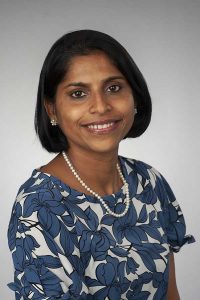 Latha Ramalingam
Latha Ramalingam
Assistant Professor, Department of Nutrition and Food Studies
Latha Ramalingam joins the Department of Nutrition and Food Studies in Falk College as Assistant Professor in Fall 2020. She works broadly in areas of metabolic disease, which include obesity and diabetes.
Prior to joining Syracuse University, Ramalingam was a Research Assistant Professor in the Department of Nutritional Sciences at Texas Tech University since 2014. Previously, she served at Indiana University’s School of Medicine as a Postdoctoral Fellow and a Research Assistant.
Ramalingam’s research interests include strategies, both in vitro and in vivo, to investigate the effects of Bioactives (omega-3 fatty acids, Vitamin D) in maternal obesity using animal models. She also has projects investigating the mechanism behind the role of Renin Angiotensin System (RAS) in beta cells. She has published in several journals, including Scientific Reports, Journal of Nutritional Biochemistry, Molecular Nutrition & Food Research, Nutrients, and Diabetes. She has presented her work at the American Society of Nutrition, American Heart Association and Obesity Society.
Ramalingam’s research has been supported by the American Heart Association, the USDA, the National Institutes of Health (NIH) National Center for Complementary and Integrative Health, the Obesity Society, and Texas Tech University. She is the recipient of several awards, including Early Career Travel Award for International Congress of Nutrition, Argentina 2017, and 2016 IJO Young Investigator Award, 13th International Congress of Obesity, Vancouver, Canada and the Early Career Grant Challenge from Obesity Society among other awards. Currently, she serves on the Editorial Board for the Journal of Nutritional Biochemistry, International Journal of Diabetes, and Obesity and Nutritional Disorders.
Ramalingam earned her Ph.D. at the Indiana University’s School of Medicine, Department of Biochemistry and Molecular Biology, in 2014. She also holds a M.Tech from Vellore Institute of Technology’s School of Biotechnology in Vellore, India and a B.Pharm from Sri Ramachandra Medical College’s School of Pharmacy in Chennai.
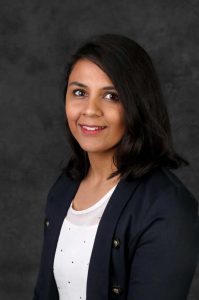 Maryam Yuhas
Maryam Yuhas
Assistant Professor, Department of Nutrition and Food Studies
Maryam Yuhas joins the Department of Nutrition and Food Studies as Assistant Professor in fall 2020. At Syracuse University, Yuhas will teach in the nutrition program.
Prior to joining Syracuse University, Yuhas served as a Postdoctoral Research Associate at the University of Virginia School of Medicine, Department of Public Health Sciences, since 2019. Previously, she has practiced as Registered Dietitian in two different clinical settings and has held roles as Graduate Research Assistant for the University of Virginia’s Department of Public Health Sciences, Virginia Tech’s Department of Human Nutrition, Foods, and Exercise, and for Oklahoma State University’s Department of Nutritional Sciences. She has also held other intern, extern, and teaching assistant roles. Yuhas’s research is rooted in the socioecological perspective and focuses on working with minority, low-income, and rural communities to implement and evaluate nutrition- and physical activity-based interventions. She is published in the Journal of the Academy of Nutrition and Dietetics, Journal of Medical Internet Research (JMIR) mHealth and uHealth, Journal of Appalachian Health, Contemporary Clinical Trials, Preventive Nutrition and Food Science, and Nutrition and Metabolic Insights. She has given scientific presentations at The Obesity Society, Experimental Biology, and the Oklahoma Academy of Nutrition and Dietetics, among others.
Current research projects for which Yuhas serves as Postdoctoral Research Associate are supported by the National Institute on Minority Health and Health Disparities of the National Institutes of Health (NIH) and by the Patient Centered Outcomes Research Institute (PCORI). Yuhas is the recipient of several awards, including the 2013 Weber Gerontology Scholarship Award at Oklahoma State University and the 2016 Interdisciplinary Graduate Education Program Award at Virginia Tech, among others. She currently serves as a reviewer for several journals including the Journal of Medical Internet Research, the Journal of the Academy of Nutrition and Dietetics, and the Journal of Adolescent Health. She is a member of the Society of Behavioral Medicine, the Academy of Nutrition and Dietetics and several community-based advisory boards and coalitions.
Yuhas earned her Ph.D. in Human Nutrition, Foods, and Exercise from Virginia Tech in 2019, specializing in Behavioral and Community Sciences. She earned her M.S. in Nutritional Sciences from Oklahoma State University and her B.S. in Nutrition and Dietetics from Benedictine University. She completed her Dietetic Internship at Oklahoma State University and earned her Registered Dietitian (RDN) credential from Commission on Dietetics Registration in 2014.
Amelia Dome, Gursimar Singh named 2020-21 Remembrance Scholars
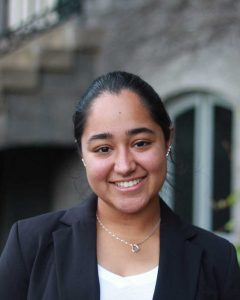 Singh, who is studying public health, is inspired by who the Remembrance Scholars represent. She feels it’s an honor and a responsibility to build on the legacy of the Remembrance Scholars who came before her.
Singh, who is studying public health, is inspired by who the Remembrance Scholars represent. She feels it’s an honor and a responsibility to build on the legacy of the Remembrance Scholars who came before her.
“They personify the type of role model who cares about the greater good and less about their own personal interests,” Singh says. “Over the years, I’ve had the great pleasure to know many of them on a deeper level, and have seen the impact they have made on the student body, including myself, as well as others in need.”
Singh is involved in OrangeSeeds, an organization on campus that focuses on uplifting the surrounding Syracuse community through service work. Her experiences with OrangeSeeds led her to intern for a local non-profit, Refugee and Immigrant Self-Empowerment (RISE), where she worked with children after their school day fostering their emotional intellectual and physical development.
“This journey has allowed me to implement the principles of my faith, helping others and putting their needs before my own,” Singh notes. “As a cohort, my hope is that we can shine the light on those whose lives were taken, rather than on our own personal achievements. Being a Remembrance Scholar is less about us as individuals, but more about acting forward in the memory of those lost.”
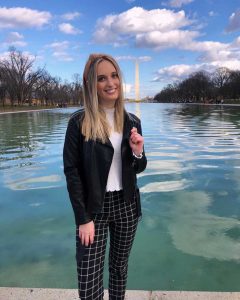 Amelia Dome is studying public health in Falk College and policy studies in the College of Arts and Sciences and the Maxwell School of Citizenship and Public Affairs. Dome recalls her freshman year at Syracuse University when she became aware of the incredible role of a Remembrance Scholar and knew she wanted to become one. She is extremely honored to be selected and attributes her public health education from Falk College as inspiration to improve the health of those who have had traumatic experiences.
Amelia Dome is studying public health in Falk College and policy studies in the College of Arts and Sciences and the Maxwell School of Citizenship and Public Affairs. Dome recalls her freshman year at Syracuse University when she became aware of the incredible role of a Remembrance Scholar and knew she wanted to become one. She is extremely honored to be selected and attributes her public health education from Falk College as inspiration to improve the health of those who have had traumatic experiences.
“As a Remembrance Scholar, I would like to raise awareness about the impacts of trauma on health. I believe that I was selected as a Remembrance Scholar because of my commitment to community service in the Syracuse area over the past three years,” Dome said. “My experiences at Syracuse have led me to pursue a career as a nurse practitioner and clinical nurse leader to further dedicate my life to improving the health of others.”
Dome said she is looking forward to working with the other Remembrance Scholars during the 2020-2021 academic year.
“I hope that we can work together to give back to communities and continue to educate Syracuse University students about the Pan Am Flight 103 attack,” Dome said. “I would like to thank all of my professors and specifically, Dr. Maureen Thompson who has always encouraged and helped me to achieve my goals.”
The scholarships were founded as a tribute to—and means of remembering—the 35 students who were killed in the Dec. 21, 1988, bombing of Pan Am Flight 103 over Lockerbie, Scotland. Those students, who were returning from a semester of study in London and Florence, were among the 270 people who perished in the bombing. The scholarships are funded through an endowment supported by gifts from alumni, friends, parents, and corporations.
Learn more about the Remembrance Scholarship
Page 12 of 26
